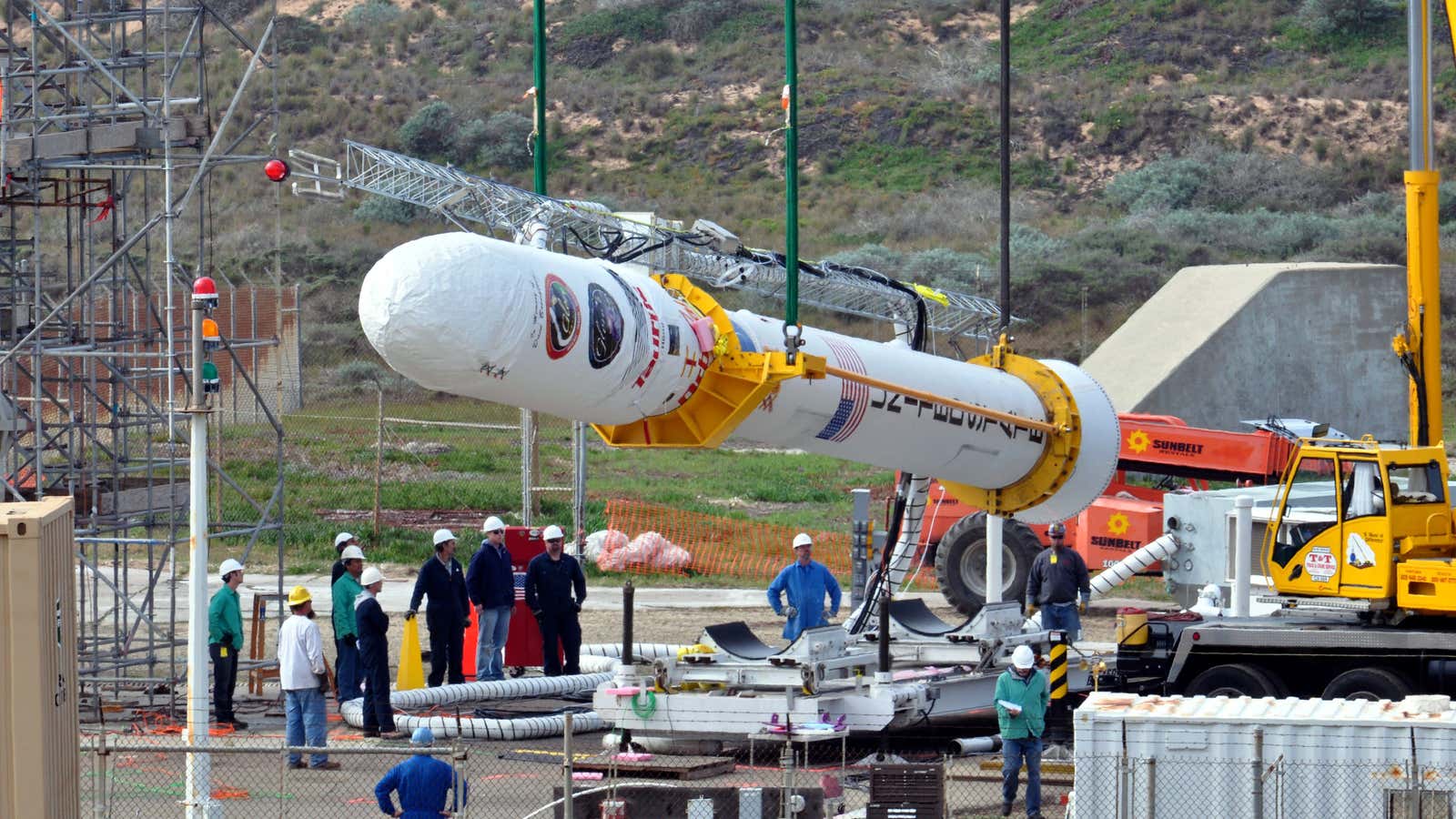The destruction of two Taurus rockets and the NASA satellites they carried is an especially frustrating failure in the annals of space exploration.
During each launch, one in 2009 and the other in 2011, the 29 meter (92 ft.) tall rockets lifted off and soared majestically toward the heavens. At the critical moment to jettison their protective nosecones, called farings, the rockets simply did not. With the extra weight still in place, the rockets did not make it to orbit. Instead, each crashed into the Pacific ocean near Antarctica.
NASA released its most detailed account of the failures (pdf) on April 30, blaming bad parts purchased from a supplier whose workers falsified data about the parts’ suitability for use in space vehicles. The result, according to the space agency, was the loss of the two rockets and the satellites they carried, at a cost of more than $700 million.
The two NASA satellites, the Orbiting Carbon Observatory and a similar earth-observing satellite called Glory, would have collected vital data about the earth’s climate.
NASA’s engineers determined that an aluminum joint, designed to be split in two by a small explosive, instead survived and kept the nosecones in place. After testing samples of similar joints, they found a culprit: Sapa Profiles, Inc., or SPI, the company that made the joints for Orbital Sciences, the contractor that built the rockets.
The parts made by SPI, called frangible joints, were likely too thick to be broken apart by the explosive charge, according to NASA, despite the firm’s claims that the joints met Orbital’s specifications.
On further investigation, the investigators discovered SPI had been falsifying test data about its products, with supervisors changing test results by hand or simply using measurements from acceptable samples to certify failed parts.
Criminal prosecutors were brought by NASA investigators, and SPI ultimately paid $46 million in restitution fees after pleading guilty to one count of mail fraud in a deal announced April 23. Previously, in 2017, SPI lab supervisor Dennis Balius was sentenced to three years in prison and paid a $170,000 fine in connection with the fraudulent certifications.
Despite admitting that it had misled its customers, SPI still disputes its role in the two launch failures, which may have led NASA to release its latest findings.
